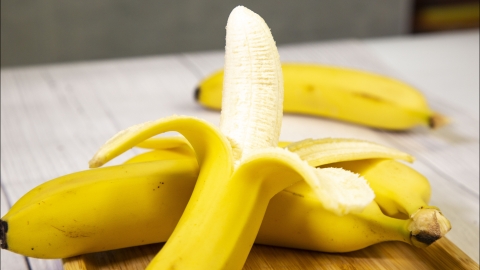Can I eat bananas with a stomach bleed?
Generally, whether patients with gastric bleeding can eat bananas depends on the specific stage and severity of the gastric bleeding. If discomfort occurs, timely medical consultation is recommended. Detailed analysis is as follows:

If gastric bleeding has entered the recovery phase, the bleeding has stopped, and there are no discomforts such as abdominal pain or black stools, and the condition is stable, patients may eat bananas in moderation. Choose ripe, soft bananas, as the pectin contained can protect the gastric mucosa. Bananas are also easily digested and do not excessively irritate the stomach; however, consumption should be controlled to avoid eating too much at once.
If gastric bleeding is in the acute phase, with symptoms such as vomiting blood or black stools persisting and the condition still unstable, bananas should not be consumed temporarily. At this stage, the stomach is relatively fragile, and the sugar and fiber content in bananas may irritate the gastric mucosa, increase the stomach's workload, and even affect hemostasis. Strict medical instructions must be followed regarding fasting or consuming only liquid foods.
Before eating bananas, patients with gastric bleeding should confirm their current disease stage and preferably consult with a physician. Cold-stored bananas should be avoided to prevent low-temperature irritation to the stomach. If discomfort occurs after eating bananas, consumption should be stopped immediately and observation should follow. During the recovery phase, diet should progress gradually—from liquid and semi-liquid foods to soft foods—and the early intake of hard or irritating foods should be avoided.








